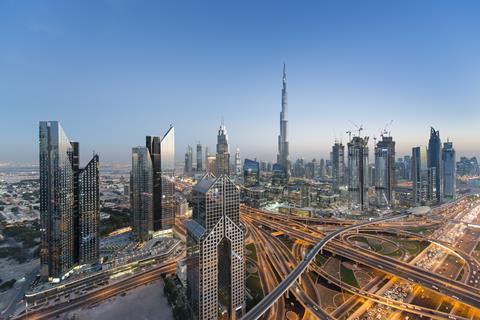There are at least ten active carriers or MGAs of political violence re/insurance operating from the Dubai International Financial Centre, one senior Dubai-based underwriter says.
The political violence re/insurance market has grown with global demand in recent years, then hardened since the Russia-Ukraine War, and the Dubai Financial Centre Authority (DIFC) has become the place where this business is underwritten in the Middle East.

The growth of PV facultative reinsurance business in Dubai reflects the DIFC’s wider trajectory to become the region’s established reinsurance hub.
The hub serves the Middle East, Africa and South Asia, with more than $2bn of gross underwritten premium across all re/insurance business annually.
The growth story for PV business has transformed the ability to underwrite civil unrest risks or geopolitical risk business within the region.
The bulk of these risks would have previously gone to the London market or elsewhere by necessity.
“Look back at 2015, in the DIFC market, I would say we were maybe four or five that were very active. Now, there are easily 10 markets in the DIFC that are very active,” said Rafic Abi Saleh, assistant vice president, war and terrorism, Liberty Specialty Markets.
“Dubai is now a proper hub,” Abi Saleh said. “They have many skilled underwriters, and you can place massive business in the region without needing to go elsewhere,” he continued, speaking on a recently published episode of The Political Risk Podcast.
“It is not anymore somewhere where you use a bit of capacity and then you complement elsewhere. It is somewhere where you can complete most placements, I would say, unless it’s something really mega,” Abi Saleh added.
The PV market was transformed by the February 2022 Russian invasion of Ukraine, which came after several years in which civil unrest events, particularly in Latin America, persuading many terrorism and war risk carriers to begin transferring strikes, riots and civil commotion risks into the standalone PV market.
Reinsurers rapidly changed their stance. The invasion of Ukraine was a major event for the PV market, due to the adverse reaction of the global reinsurance and retrocessional markets, excluding business, and tightening capacity and hardening pricing for reinsurance or retrocessional protections.
“This was the turning point”, he said, adding, “This is where everyone, everywhere got hit”.
Carriers or MGAs in Dubai underwrite PV business as standalone facultative reinsurance, requiring retrocessional coverage to further transfer some of the exposure.
“It’s not a secret that the reinsurance, all of our retros, were very challenging, which is something the market was not used to,” Abi Saleh said.
“The Ukrainian conflict…hardened the market for the past two years, worldwide, I would say, in some places more than others. We’re not seeing anymore the reductions we saw from 2015 to 2019, when it was a very soft market,” he added.










No comments yet